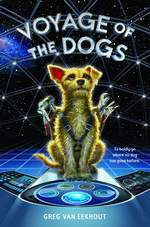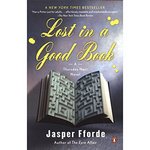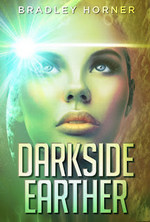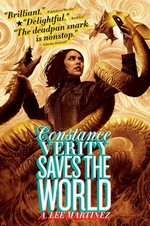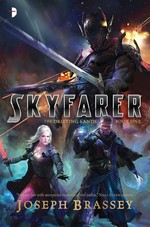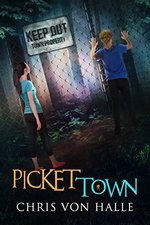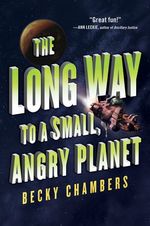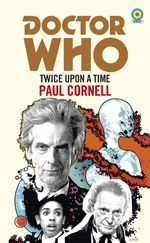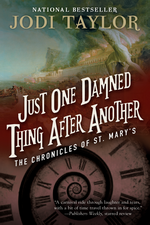 Just One Damned Thing After Another
Just One Damned Thing After Another
by Jodi Taylor
Series: The Chronicles of St. Mary’s, #1Paperback, 480 pg.
Night Shade Books, 2016
Read: July 30, 2018

Thinking carefully is something that happens to other people.
I lost my notes to this book, which is annoying me greatly. So I’m going to be a bit more vague than I want to be.
I could tell from the first couple of pages that I was going to have a great time with this book — our narrator is Dr. Madeline “Max” Maxwell, a specialist in ancient history. She is charming, engaging, brash, and funny. She’s a few more things, too, but let’s leave it there. Essentially, she’s a delight — it almost doesn’t matter what setting you put her in, what story you tell with her — I’m in.
Thankfully, Taylor puts her in a crazy novel, one perfectly suited for her. When we meet her, Max is being recruited by a former mentor to join St Mary’s Institute of Historical Research, a very strange research facility. These historians get their hands dirty in their research in the ways that no other facility on Earth can manage — they have time machines to take them to whatever point in time they’re studying so they can see ad experience history first-hand.
Sounds great, doesn’t it? But things go awry — in spectacularly bad fashion. But, for these Historians, where there’s tea, there’s hope. Using wit, sheer determination, and a little luck Max and her new colleagues will have to find a way to meet these new and dangerous challenges.
There’s a lot more action and fighting than you’d think given that the book is about Historians and the Technicians who work with them. There’s a lot of humor, some pathos, a little love — and a little more sex than I’d prefer (thankfully most of it happens “off screen,” but not all of it). The plot is impossible to summarize well — it bounces around from point to point like a ball in a pinball machine. This is not a complaint, this is a description. Months will go by in a paragraph (or less) and then things will slow down for the events of a day or two. These are Time Travelers, after all, they can squeeze a lot of activity into a short period of time.
There are some other great characters here, too. Max has wonderful, loyal and capable allies (who happen to be interesting to read about); she has fantastic antagonists — the kind of characters you can relish your annoyance/anger/moral superiority over; her friends are interesting, he love interest is about as fun as you could ask for, and is charming enough in his own right.
I wish I’d had the time to write this up when the book was fresher in my mind — or if I’d not lost my notes. This book deserved a bit more from me. Basically, this book — between characters, circumstances, plot and tone is what I’d hoped for from the Tuesday Next books. I have no idea if Taylor can keep up the freshness of the voice, the zaniness of the plot, and the engaging quality of the characters (particularly Max) — it’ll be tough to do. But I’m looking forward to finding out. I had a blast reading this one, and can’t imagine that Taylor’s charm wouldn’t win over at least 87% of those who give this a try.
—–



